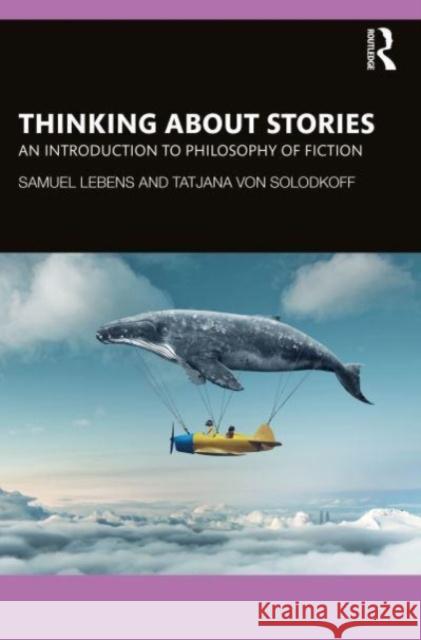Thinking about Stories: An Introduction to Philosophy of Fiction » książka
Thinking about Stories: An Introduction to Philosophy of Fiction
ISBN-13: 9780367647513 / Angielski
Thinking about Stories: An Introduction to Philosophy of Fiction
ISBN-13: 9780367647513 / Angielski
(netto: 181,87 VAT: 5%)
Najniższa cena z 30 dni: 178,95
ok. 22 dni roboczych.
Darmowa dostawa!
Thinking About Stories is a fun and thought-provoking introduction to philosophical questions about narrative fiction in its many forms, from highbrow literature to pulp fiction to the latest shows on Netflix. Written by philosophers Samuel Lebens and Tatjana von Solodkoff, it engages with fundamental questions about fiction, like: What is it? What does it give us? Does a story need a narrator? And why do sad stories make us cry if we know they aren’t real? The format of the book emulates a lively, verbal exchange: each chapter has only one author while the other appears spontaneously in pop-up boxes in the text along the way, raising questions and voicing criticisms, and inviting responses from their co-author. This unique format allows readers to feel like they are a part of the conversation about the philosophical foundations of some of the fictions in their own lives. Key FeaturesDraws on a wide range of types of narrative fiction, from Harry Potter to Breakfast of Champions to Parks and RecreationExplores how fiction, despite its detachment from truth, is often best able to teach us important things about the world in which we liveConcludes by asking in the final chapter whether we all might be fictionsIncludes illustrated text boxes, bibliographies, and annotated suggested reading lists in each chapter
Thinking About Stories is a fun and thought-provoking introduction to philosophical questions about narrative fiction in its many forms, from highbrow literature to pulp fiction to the latest shows on Netflix.
Written by philosophers Samuel Lebens and Tatjana von Solodkoff, it engages with fundamental questions about fiction, like: What is it? What does it give us? Does a story need a narrator? And why do sad stories make us cry if we know they aren’t real? The format of the book emulates a lively, verbal exchange: each chapter has only one author while the other appears spontaneously in pop-up boxes in the text along the way, raising questions and voicing criticisms, and inviting responses from their co-author. This unique format allows readers to feel like they are a part of the conversation about the philosophical foundations of some of the fictions in their own lives.
Key Features
- Draws on a wide range of types of narrative fiction, from Harry Potter to Breakfast of Champions to Parks and Recreation
- Explores how fiction, despite its detachment from truth, is often best able to teach us important things about the world in which we live
- Concludes by asking in the final chapter whether we all might be fictions
- Includes illustrated text boxes, bibliographies, and annotated suggested reading lists in each chapter











